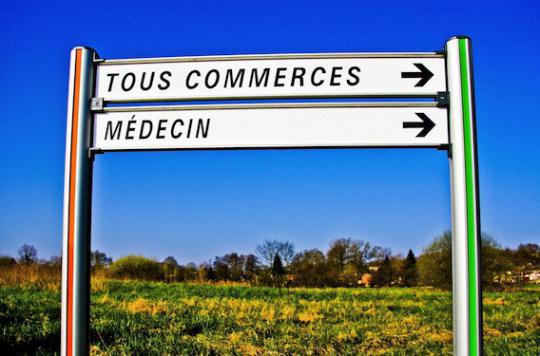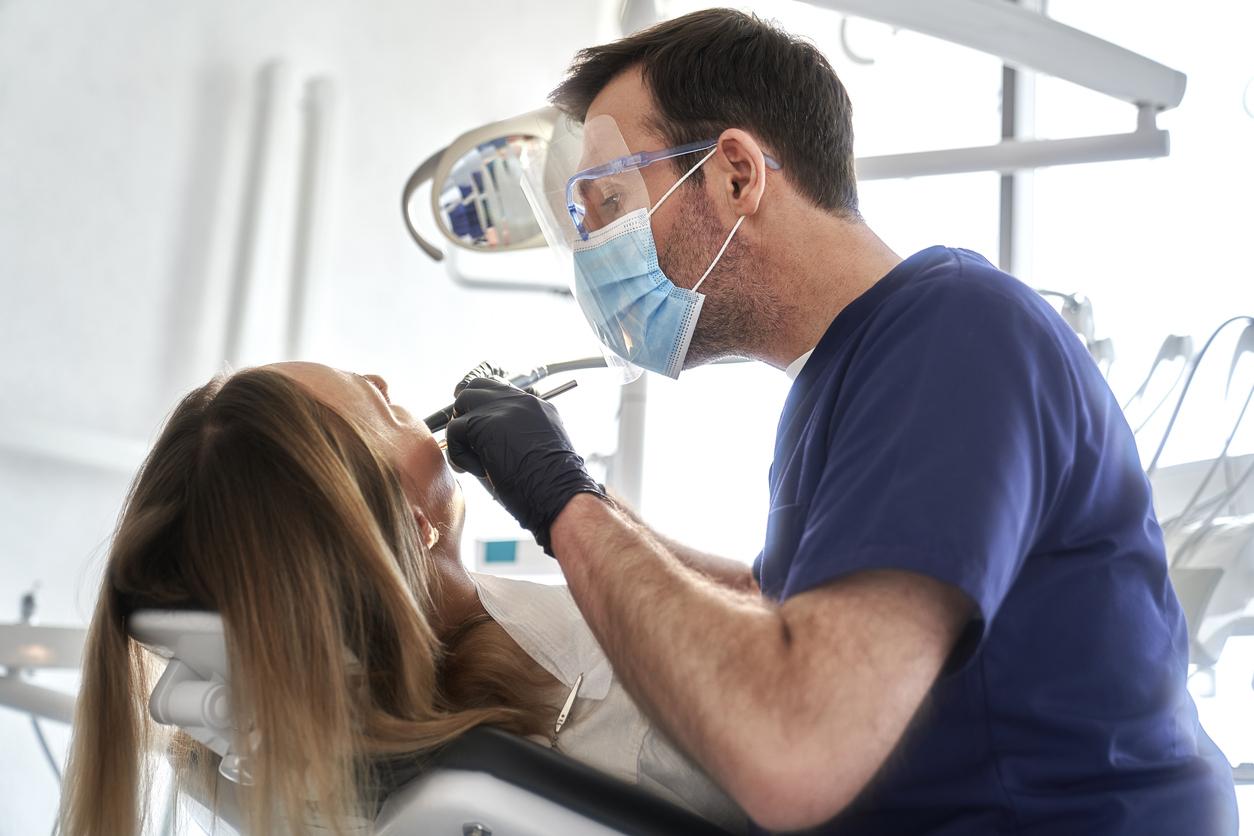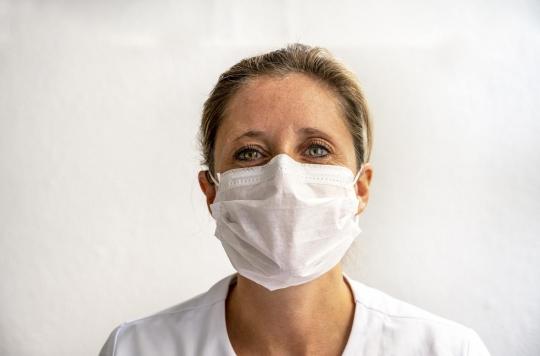
In 2015, the Order of Physicians listed 192 medical deserts in which nearly 2.5 million people live. To find successors, elected officials redouble their imagination. Anthology.
On February 9, theAssociation of Small Towns of France (APVF) relayed a cry of despair. That of the mayors of small French municipalities, more and more confronted with the insoluble problem of medical deserts. Aging practitioners, difficulty in finding replacements, insufficient supply (particularly in specialized medicine) are all reasons for the shortage of doctors. And this situation affects a large part of France, it would concern nearly 70% of the municipalities that responded to the APVF questionnaire.
The difficulty was recently confirmed by figures from the Order of Physicians (CNOM). In his Atlas of Medical Demography 2015, he listed 192 medical deserts in which nearly 2.5 million people live! This concerns peri-urban municipalities or those bordering a large city, or a metropolis, but above all, many rural areas.
City officials and future retired doctors are more and more ready to do anything to conquer the hearts of successors. Why actor investigated the most unusual methods.
37.1 °, the ideal weather forecast in Saône-et-Loire
As our report shows in the Autun district, Saône-et-Loire (+556,000 inhabitants) is one of the departments hit hard by medical desertification. According to statistics from the Order, the number of general practitioners has fallen by 13.1% since 2007. Their density has fallen to 7.5 per 10,000 inhabitants, against 13.3 nationally.
In an attempt to curb the vocations crisis, the local authorities in 2013 relied on an original device: a site, installeunmedecin.com, intended for medical students, health professionals, municipalities and inter-municipal authorities. The system provides for financial measures for all health professionals, in particular with a check on installation, capped at 5,000 euros (1), to finance part of the equipment costs. For students, the system offers two study grants, as well as aid to finance costs related to accommodation and mobility during internships. In addition, the communities of Saône-et-Loire are granted aid by the department to finance the use of a recruitment agency and a subsidy for the construction or renovation of medical premises.
Funnier, the departmental council goes so far as to offer a 2-day Instal’box weekend so that potential successors can discover the department with their families. This stay would have recently convinced a doctor of Latvian origin to settle there. Finally, the campaign “37.1 °, ideal temperature for settling in Saône-et-Loire”, accompanied by an offbeat and humorous visual, also created the buzz.
Social networks as a last chance
But beyond the web and television, municipalities on the verge of nervous breakdown have also seized on even more modern tools to attract doctors. Among them, social networks.
In Fréhel, a village in the Côtes-d’Armor region of 1,500 inhabitants, the pharmacist recently posted an ad on the good corner for general practitioners and set up a medical center by 2017. “The town of Fréhel is looking for two or more doctors because of the future retirement of two doctors out of the three present,” he wrote last August. Six months later, the offer has still not found a taker, even if the pharmacist indicates that he has several keys. Even more desperate, a doctor from Saulnot (Haute-Saône) has been offering his medical practice for several days on the same site. With an area of 300m2, it also sells equipment and customers against … no consideration! “At 66, I play overtime, but my ethics do not allow me to abandon my patient,” explained Dr. Laine, who made the decision to quit following a stroke.
On Facebook, however, the only general practitioner in the village of La Garnache (Vendée) has found his successor thanks to the best known of social networks. In this regard, we can underline that the original initiatives are commonplace in the Great West since in June 2014, the municipality of Limerzel (Morbihan) had turned a fake newscast to attract health professionals. And last June, the ARS of Brittany even organized a “generalist dating”.
But the most original of these initiatives undoubtedly happened a few days ago. In the absence of a general practitioner, the town hall of La Roche-Derrien (Côtes-d’Armor) announced on March 18 that it had recruited a “healing druid” … Before admitting that everything was false and that ‘it was a communication operation mounted to denounce the shortage of doctors in the region. So, in order to centralize all its requests, the site BarterDoc was also created. Last month, Marie Bigourdan, at the origin of the project, claimed to have crossed the bar of 1,500 announcements! With a good evolution moreover since 500 announcements were posted in barely 2 months (January – February) “it is our record”, she specified. One more proof that many doctors are concerned by the shortage of successors.
Finally, in Lucenay-l’Evêque (71), Dr Cécile Gogué-Meunier believed he had found the miracle solution a few years ago. His name was “Serguei”, a Romanian doctor recruited by a head hunter to settle in the town. Hope quickly disappointed since this practitioner left overnight. He obviously warned the GP, but the day before his departure! This anecdote is reminiscent of another failed love story between foreign doctors and France. We all remember another general practitioner from the Carpathians who said she was humiliated during her interview with the Vendée College of Physicians. While she was to settle in this medical desert, she had returned to her country before her installation!
The two pacts of Marisol Touraine
Alongside these original measures, real anti-medical deserts plans have been launched by the public authorities. Presented at the end of 2015 by Marisol Touraine, we can cite the “Pacte Territoire Santé 2” which includes in particular the development of internships in town halls. Until then reserved for students of general medicine, they will now be open to students of other specialties such as ophthalmology or pediatrics. In addition, the numerus clausus in force in medical faculties will be increased by 131 students (an increase of 6.4%) for the benefit of universities located in ten regions lacking doctors.
In addition, 200 new Public Service Commitment Contracts (CESP) will be implemented by 2017: they will allow a student to receive financial assistance (1,200 euros per month) in exchange for a commitment to its installation in a shortage area.
The acclaimed nursing homes
In the same vein, the plan provides for a ramp-up of the Territorial Practitioner of General Medicine (PTMG) contracts. The goal set by Marisol Touraine is the signing of 1,000 of these contracts in 2017, which is 50% more than currently forecast.
These contracts will now include the payment of paternity leave and sick leave. As a reminder, this system already offers young general practitioners a financial guarantee of income. It is now accessible to specialists.
Latest measures announced, the creation of 200 additional homes or health centers, or telemedicine experiments in cities in 2016 in nine regions, for the benefit of retirement and healthcare homes.
(1) This check can go up to 10,000 euros for ophthalmologists, provided they practice for at least three years in the municipality
.












